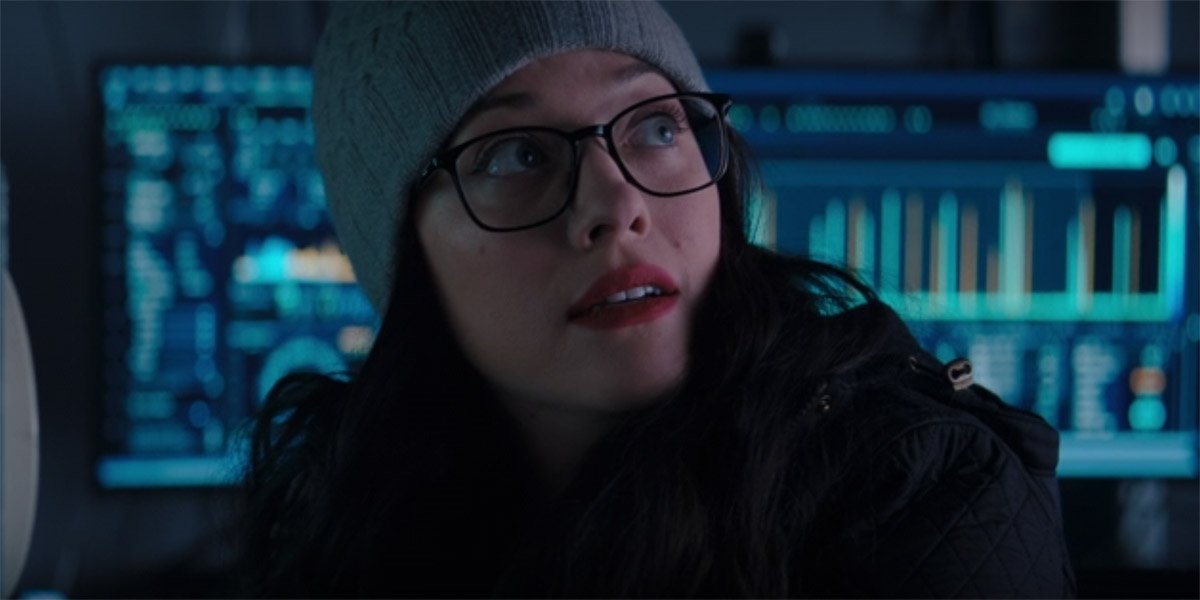How WandaVision’s Creator Figured Out How To Bring S.W.O.R.D. To The Marvel Cinematic Universe

While the main plot of WandaVision has largely been self-contained within the Marvel Cinematic Universe thus far, the show has made one massive contribution to the larger franchise. Following multiple hints since the two-part premiere, the organization S.W.O.R.D. was fully revealed on last week’s episode, and audiences not only learned what the agency does, but also some key information about how it was founded. It should prove to be a significant development in the canon going forward – not unlike S.H.I.E.L.D. in Phase One and Phase Two – and I recently had the chance to talk all about it with series creator Jac Schaeffer.
A special WandaVision virtual press day was held this week in celebration of the show’s latest, massively revelatory episode, and it was while interviewing Jac Schaeffer that I asked how S.W.O.R.D. came to be a part of the story being told. Based on her response, it most definitely seems that the implementation of the Sentient Weapon Observation Response Division was something that came from the “Big Picture” side of development at Marvel Studios, and it was an element she clearly enjoyed utilizing in the show’s mystery. Said Schaeffer,
The idea that Maria Rambeau founded S.W.O.R.D. was a real discovery and very exciting. And in a way I was a little bit jealous because I'm like, there's this whole chapter of the MCU that we're now saying occurred off screen, and that's amazing. So that part of it was really fun, and I've loved all the memes about Peggy Carter founding [S.H.I.E.L.D.], and it's so great. It's so, so great.
As directly referenced by Jac Schaeffer, it’s now been made officially canon that S.W.O.R.D. in the Marvel Cinematic Universe was created because of the efforts of Maria Rambeau, memorably brought to life by Lashana Lynch in 2019’s Captain Marvel, and one of the coolest things about that is how it continues a tradition of awesome women in the franchise building massively important organizations. The move definitely puts Rambeau right in the footsteps of the legendary Peggy Carter, and while the details only exist as exposition for now in the franchise, it’s certainly possible that we will get a first-hand look at her big story someday (similar to how the Agent Carter series put its titular heroine front and center in the mid-20th century).
Continuing, Jac Schaeffer added that introducing a formed entity like S.W.O.R.D. into the plot of WandaVision had its share of hurdles that needed to be overcome, but she gave credit to her filmmaking collaborators in the process to take the organization from simply existing on the page to becoming a stunning sight in the Marvel Cinematic Universe – beginning with that awesome shot towards the beginning of the fourth episode revealing the headquarters for the first time. Said the series creator,
Sort of imagining an agency that already exists without like the building of it and seeing all of it... It was a little bit challenging and [director] Matt Shakman and our production designer, Mark Worthington they put a lot of effort and energy into that exterior shot of headquarters, which, you know, that's like one of the few things that wasn't on the page, it was just like 'Exterior: S.W.O.R.D. Headquarters.' And then they built the whole thing from the ground up. That was really, really fun to watch happen.
And S.W.O.R.D. is most definitely not going away any time soon. Not only is the agency front and center in WandaVision, collaborating with the FBI to discover what the hell is going on with Scarlet Witch and Vision in the mysterious town of Westview, New Jersey, but it also looks to be a significant piece of the puzzle in the big picture thanks to the tease in the end credits of Spider-Man: Far From Home. Exactly where things go from here is unknown, but we are incredibly excited to find out.
CINEMABLEND NEWSLETTER
Your Daily Blend of Entertainment News

Eric Eisenberg is the Assistant Managing Editor at CinemaBlend. After graduating Boston University and earning a bachelor’s degree in journalism, he took a part-time job as a staff writer for CinemaBlend, and after six months was offered the opportunity to move to Los Angeles and take on a newly created West Coast Editor position. Over a decade later, he's continuing to advance his interests and expertise. In addition to conducting filmmaker interviews and contributing to the news and feature content of the site, Eric also oversees the Movie Reviews section, writes the the weekend box office report (published Sundays), and is the site's resident Stephen King expert. He has two King-related columns.
Most Popular








